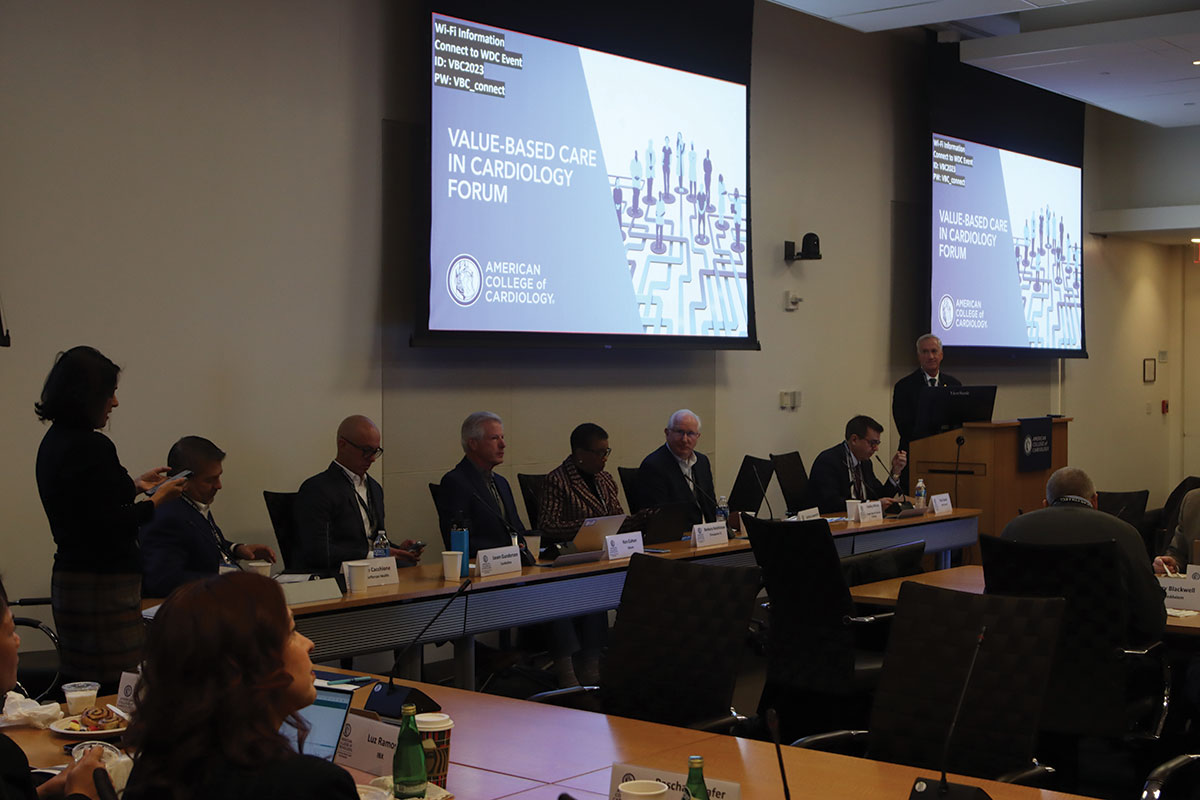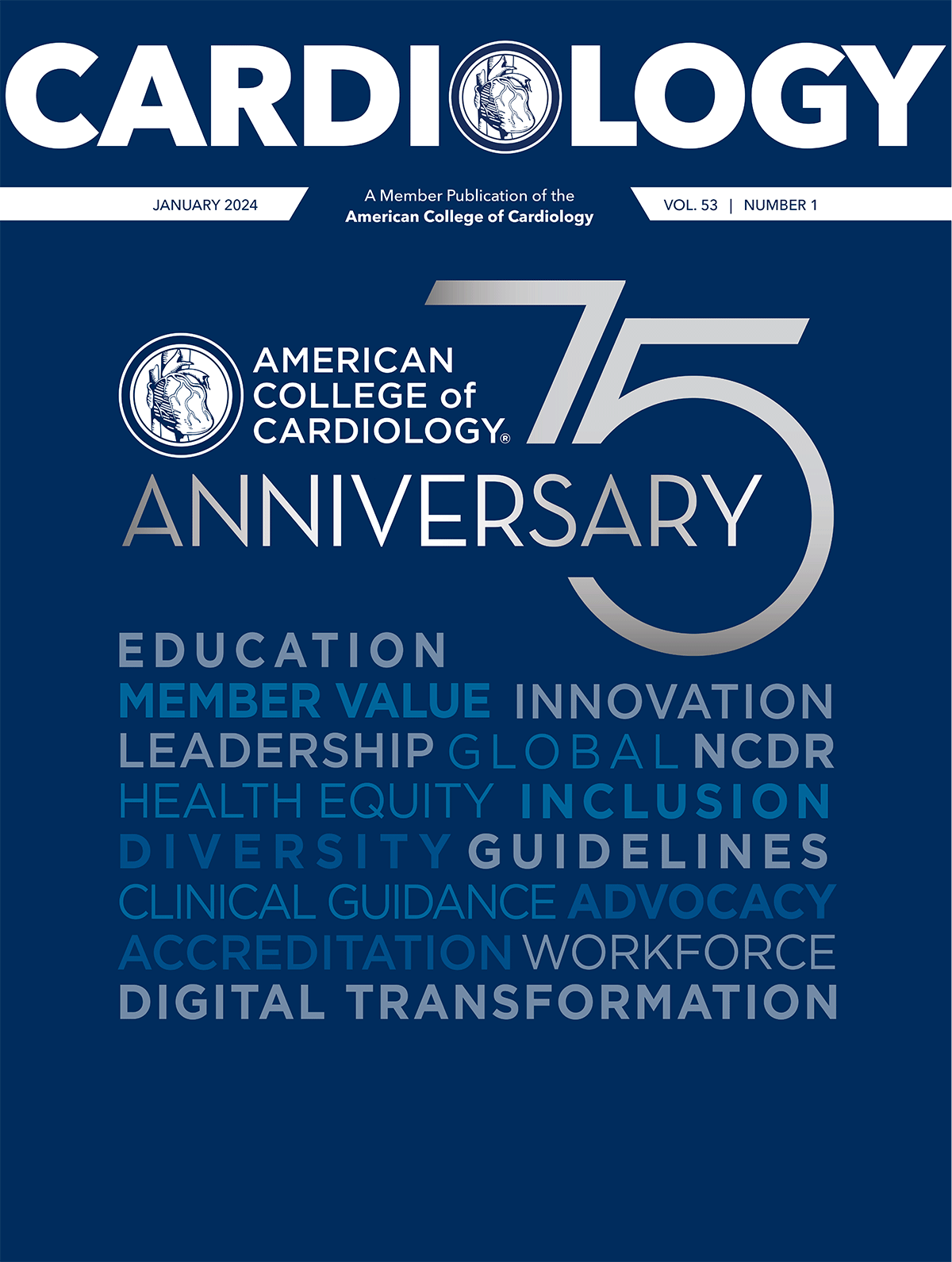Heart of Health Policy | Year in Review: ACC Advocacy Top Ten From 2023

As the caretakers of cardiovascular patients, the ACC is committed to developing and advancing solutions to increase access, quality and value of patient care and promote heart health for all. Throughout the past year, ACC Advocacy has been hard at work ensuring the voices of cardiovascular clinicians and patients are heard from the halls of Congress to statehouses across the country. In no particular order, here are ACC Advocacy's top ten highlights from 2023.
Championing Patient Access to Care

Comprehensive, long-term Medicare reform continues to be a priority for ACC Advocacy. In 2023, the College supported two bills: the Strengthening Medicare for Patients and Providers Act – which adds an annual inflationary update equal to the Medicare Economic Index to the Medicare Physician Fee Schedule (PFS) – and the Provider Reimbursement Stability Act – which would reform the Medicare PFS, most notably by raising the budget neutrality threshold from $20 million to $53 million. While these short-term reforms are a step in the right direction, significant reforms are required within the current system to achieve the College's vision. Click here to view ACC's Vision For Championing Patient Access to Care.
Digital Care and the Role of AI
With lawmakers actively engaging with stakeholders to grasp the complexities of artificial intelligence (AI), the ACC responded to a congressional request for information on data privacy and considerations for AI, commented on proposed rules implementing the 21st Century Cures Act information blocking and interoperability provisions, and participated in the American Medical Association's Specialty Society AI workshop. The College will continue to work with Congress and agencies on this issue and provide members with the resources necessary to comply with advancing standards.

HeartPAC: Supporting the Cardiology Party
Thanks to ACC member support, HeartPAC is making an impact! The ACC represented cardiovascular clinicians and patients at over 160 events, supporting 54 Democrats and 54 Republicans, in 2023. In total, HeartPAC contributed $281,000 to these congressional candidates for the 2023-2024 election cycle. Learn more at HeartPAC.org.
Advocate, Engage and Influence: ACC's 2023 Legislative Conference

More than 400 cardiovascular clinicians from across the U.S. took part in ACC's 2023 Legislative Conference in Washington, DC, from Oct. 15-17, where issues like protecting clinician well-being, improving heart health for all and increasing access to cardiovascular care were the focus. ACC Advocates held nearly 300 meetings with lawmakers, raised over $40,000 for HeartPAC and increased support for several ACC-priority bills. Following the conference, co-sponsorship increased by 75% for the Getting Over Lengthy Delays in Care As Required by Doctors (GOLD Card) Act, 53% for the Strengthening Medicare for Patients and Providers Act, and 111% for the Increasing Access to Quality Cardiac Rehabilitation Care Act.
Improving Heart Health For All
The ACC worked to reduce unnecessary amputations by helping craft and support the Amputation Reduction and Compassion Act last year. Many peripheral artery disease-related amputations could be avoided through early diagnosis and attention to the conditions, allowing clinicians to pursue aggressive risk factor modification, supervised exercise programs and surveillance studies. The proposed legislation marks a step forward in efforts to reduce health disparities and achieve health equity for patients in need of cardiovascular care. The College also continued championing expanded access to cardiovascular and pulmonary rehabilitation services by urging lawmakers to support the Increasing Access to Quality Cardiac Rehabilitation Act of 2023, which would expand the ability of the cardiac care team (PAs, NPs, CNSs) to order services beginning in 2024.
Driving Grassroots in Action
More than 6,000 letters were sent to state and federal lawmakers in 2023, advocating on a wide array of issues impacting clinicians and patients, including Medicare payment reform, noncompete bans, access to AEDs, expanding postpartum Medicaid coverage, easing prior authorization burdens and more. Click here to learn more about taking action with ACC Advocacy.
Easing the Prior Authorization Burden
The ACC continued its work to ease administrative burdens borne by clinicians and ensure patients receive timely access to cardiovascular care. In 2023, the College supported the GOLD Card Act as a next step to address prior authorization at the federal level. Modeled after a Texas law, the bill would exempt qualifying clinicians from prior authorization requirements under Medicare Advantage plans. At the state level, Washington's governor signed legislation that expedites response times for provider requests and determinations and requires payers to integrate prior authorization into electronic health records. This win came following the testimony of Ruchi Kapoor, MD, PhD, advocacy chair for ACC's Washington Chapter, who spoke before the Washington State House Appropriations Committee.
Sudden Cardiac Arrest Awareness and Preparedness

Joining the National Football League's Smart Heart Sports Coalition in June, the College was been focused on pushing for the adoption of increased CPR education, access to AEDs and emergency action plan requirements across all 50 states. This ongoing campaign aims to protect the lives of high school student athletes, and great strides have already been made in Ohio and Maryland. At the federal level, your ACC has advocated for the Access to AEDs Act, which has garnered bipartisan support in the U.S. House and Senate. The bill aims to grant schools access to AEDs and ensure adherence to best practices as outlined by the ACC and American Heart Association guidelines for heart health screening programs.
Banning Noncompete Clauses
Addressing noncompete clauses and their negative impact on cardiovascular clinicians across the country has been a priority for several ACC State Chapters this legislative session. In 2023, noncompete bans impacting health care were passed in Indiana, Minnesota and New York. The College also submitted comments regarding the Federal Trade Commission's proposed rule on noncompete agreements, warning of the potential to limitations to patient access, care disruptions, the stifling of innovation and adverse effects on physician work life. For more on this topic, click here to access the ACC Board of Governors White Paper.
Specialty Integration in Value-Based Care

The ACC hosted its fifth annual Value-Based Care in Cardiology Forum at its Heart House headquarters in Washington, DC, on Nov. 30. Stakeholders from cardiology, health systems, government and industry joined together for the day-long event to explore challenges and evaluate potential solutions to integrating cardiovascular specialists into value-based care models. (Click here to learn more.) Your ACC plans to continue collaborating with clinicians, payers, employers and other stakeholders to move toward improved care models that strengthen patient value and outcomes, and has developed a set of principles for value-based payment models.
A Look Ahead
Moving into 2024, many of the same key issues will remain a top priority, including long-term Medicare reform, addressing workforce shortages and burnout, and safeguarding patient access to high-quality cardiovascular care. As of Dec. 5, 34 members of the U.S. House and eight members of the U.S. Senate are not seeking re-election, underscoring the crucial role HeartPAC will play in the year ahead. Your ACC will need every available resource to bridge this gap and build relationships with new members, including those who will be stepping into senior positions on key committees. A well-funded HeartPAC allows the College to maximize its advocacy efforts on Capitol Hill. Learn more at HeartPAC.org.
Keywords: Cardiology Magazine, ACC Publications, ACC Advocacy, Medicare, Medicaid, Electronic Health Records, Prior Authorization, Patient Care Team, Health Policy

